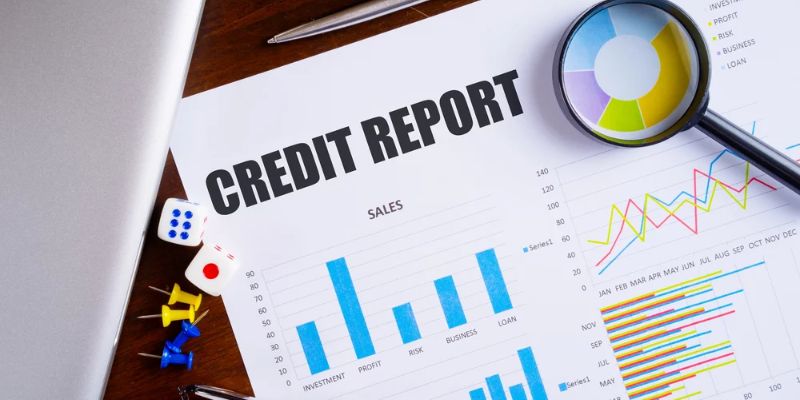Equity capital markets (ECM) allow companies to accept public investment. An IPO, where a company sells its shares, usually starts this process. Additionally, companies may issue more shares through secondary offerings in these markets. This is more than a fundraising exercise—it's a chance for the average person to own a piece of a company and benefit from dividends or share value growth.
Investors seek companies with growing value at ECM. When they buy shares, they bet on the company's success. Companies may prefer ECMs because they don't require interest payments and provide funds without debt. US stocks are worth over $30 trillion. This amount of capital shows the stock market's importance to the economy. ECM gives companies a piece of this massive financial resource.
Equity capital markets facilitate $1 trillion-plus deals worldwide. This activity shows the global appetite for investment and businesses' and investors' confidence in the market's wealth creation.
If a tech startup goes public and its stock rises, it benefits the company and its new shareholders and may inspire other startups to follow suit. Statista reports that global IPOs totaled $230 billion in 2021. This number represents many companies across industries that have used equity capital markets to grow.
Equity Capital Markets and Economic Growth
The vitality of the equity capital markets is a mirror reflecting the broader economy's health. A robust ECM suggests that companies are not only looking to grow but are also finding willing investors to support their vision.
This dynamic is a significant driver of economic expansion. When companies successfully raise capital through ECM, they often use these funds to innovate, hire more staff, and enter new markets—all contributing to economic momentum.
Moreover, the money raised through equity capital markets can lead to infrastructure development, research and development, and other capital-intensive projects that might have been unfeasible through borrowing alone. This is because equity doesn't require regular repayments like loans, giving companies more flexibility to invest in long-term growth strategies.
Money Market vs Capital Market

The money market vs capital market and capital market are two different financial system parts. The money market is used for short-term borrowing and lending, often under a year. Treasury bills and commercial paper provide liquidity and safety in this market.
In their economic effects, the money market and capital market differ. The money market vs capital market maintains liquidity and short-term financial stability, but the capital market builds long-term economic foundations. A company can raise funds to build a decades-long factory in the capital market, adding to the economy's capital structure.
BIS estimates the global bond market is worth over $100 trillion. This number dwarfs money markets and shows how the capital market shapes companies' and nations' finances.
Key Functions of ECM
Equity capital markets help companies raise funds by connecting them with investors willing to buy shares. They establish a company's share value, allowing shares to be bought and sold. ECMs also help investors make informed decisions by sharing company information.
Raising Capital
Equity capital markets are the preferred funding source for companies. Here, companies sell shares to big and small investors. Companies use raised funds to expand, innovate, or pay off debts.
Tech startups may use equity capital markets to grow. It can earn millions or billions by selling shares—not pocket change. IPOs raised $600 billion worldwide in 2021, a record. This shows how powerful ECM is in providing growth capital.
Price Setting
Setting share prices is crucial to equity capital markets. Prices fluctuate based on buyers' and sellers' bids, like an auction. Supply and demand drive this price dance. When many people buy a company's shares, the price rises. If many sell, prices fall.
Company value and economy capital depend on this pricing mechanism. Investors will value a company's shares more if they expect it to succeed. Despite a weak economy, the S&P 500 rose 16% in 2020. This boost in investor confidence helped companies raise capital at reasonable prices.
Liquidity Provision
Equity capital markets run on liquidity. Investors can quickly buy or sell shares without affecting the price. Market health depends on this fluidity, like having a supermarket where you can always buy or sell groceries at fair prices.
Easy trading attracts investors to equity capital markets, helping companies raise economic capital. Daily U.S. equity trading volume averaged 7 billion shares in 2019. This high volume indicates a liquid market, making it easier for investors to buy or sell companies.
Information Sharing
Information dissemination is equity capital markets' final function. Share prices reveal investors' opinions of a company's recent and future performance. A scorecard shows a company's performance.
A rising share price usually indicates that the market thinks a company is doing well or will do well. This can affect board and investor decisions. For instance, a company's shares rising steadily over the past year may indicate stability and growth. The company may attract more investors, increasing its ability to raise economy capital.
Breakdown of ECM Structure

The ECM has two structures, which are discussed briefly below:
Primary Equity Market
In the primary equity market, companies plan their finances. They can go private with select investors or go public with an IPO. Private placements are riskier and have fewer regulations, but they can raise large amounts of money faster and give investors a more significant stake in the company. However, going public requires regulatory approval and a listing on a stock exchange, where the company's shares are priced and traded.
Secondary Equity Market
Existing shares trade in the bustling secondary equity market. Companies don't raise funds here, unlike the primary market. Instead, investors trade shares on stock exchanges or OTC. Besides a company's current value, future performance expectations can affect prices in this market. OTC deals involve bulk purchases at negotiated prices, usually in private.
ECM and Its Impact on Companies
Businesses that use equity capital markets can drastically change their finances. ECM equity financing lets companies grow without adding debt, an intelligent move for financial risk-averse companies. Selling shares to the public dilutes existing shareholders' ownership stake and allows new voices in company decisions.
The shift can be good or bad. It brings new capital into the company, allowing for investment in new projects or technology that can boost profits. The original owners may lose control of the company. Shareholders expect regular updates and may oppose decisions that don't yield quick financial returns.
ECM affects a company's strategy significantly. As public investors seek quick wins, they focus more on short-term financial results. This can alter company strategy, prioritizing short-term profits over long-term goals.




